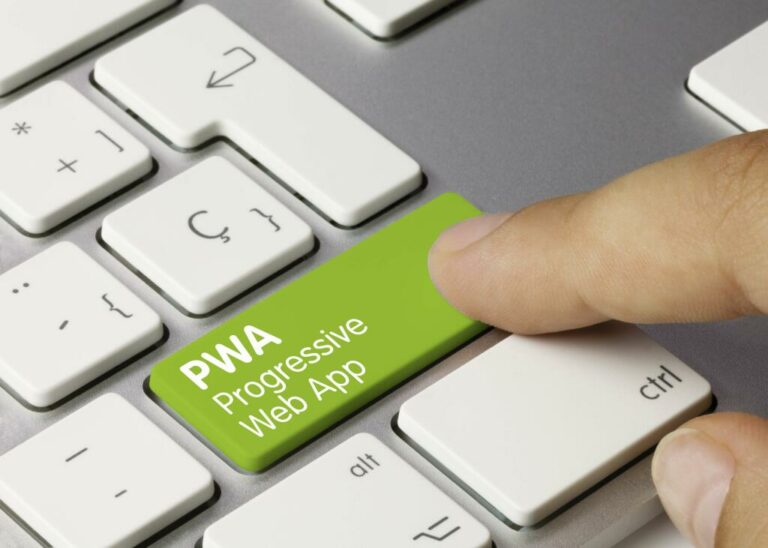Also, it allows decentralized authority to streamline the administration of registries like marriage certificates, land titles, and felony data. Smart contracts may be executed on blockchain networks seamlessly powered by id https://www.globalcloudteam.com/. This has the potential to assist automate and streamline tasks which are very guide and require middlemen.

The ID2020 initiative, meanwhile, is a global partnership dedicated to ushering within the next period in ID administration. Its alliance includes BLOK Solutions and Accenture, two startups specializing in blockchain digital identification providers. The blockchain identification solutions you may have envisioned might want a completely different consumer move or challenges identification than those mentioned right here. Blockchain for id and entry management gives no incentive to customers to create a quantity of identities.
Fundamental User Circulate Of A Digital Identity Blockchain
Employee Verification- Blockchain-based digital identity allows secure passwordless login methods reducing the chance of information breaches attributable to hacked worker accounts. It additionally permits employers to confirm candidates’ credentials immediately by scanning a QR code linked to a digital Identity (DID). Traditional identity methods are prone to single points of failure, making them susceptible to cyberattacks, pure disasters, and system outages. On the opposite hand, blockchain consulting services operate on a decentralized network of nodes, making certain that no single entity has management over the entire system. The idea of self-sovereign identity (SSI) is a key function of blockchain-based digital identities.

Once identity information is recorded on a blockchain, it cannot be altered with out consensus. This immutability of delicate, personally identifiable info ensures that identity knowledge stays constant and reliable. It additionally prevents malicious actors from altering identification knowledge for fraudulent purposes. Blockchain-based digital identities could be stored in many alternative locations, without inflicting any information integrity or trust issues. Since blockchains are
The Mechanics Behind Blockchain Identity Verification
Decentralized storage is doubtless one of the core elements of secure identification data management. In a decentralized framework, credentials are usually stored directly on the user’s gadget (e.g., smartphone, laptop) or securely held by non-public id shops. Identities anchored on blockchains are inherently safer than identities saved on centralized servers.
One of the key advantages of a personal blockchain is that only the entities collaborating in a specific transaction may have data and access to it. In this whitepaper, we begin by describing the present state of affairs with identification, how we obtained right here and describe some of the issues that we have to overcome. We then have a look at the distinctive capabilities of blockchain and describe the way it has the potential to deal with many of those issues. We will then think about a few of the practical hurdles that the industry at large has to beat when utilizing id on the blockchain. Finally, we’ll look at how Okta is collaborating with our customers and partners to allow new use cases for identity with blockchain.
Blockchain digital id options include several benefits for businesses, governments, and individuals. Driven by these apparent flaws, the digital identity administration area is ripe for blockchain’s entry. By combining digital identity and blockchain, a majority of those and different points may be resolved while a spread of use circumstances may be launched.
With decentralized id options, individuals can choose when, how, and with whom they share their personal information. This not only enhances information security and privacy but also reduces the danger of information being mishandled or misused by third parties. Additionally, customers typically must handle multiple usernames and passwords throughout various platforms, leading to password fatigue and elevated vulnerability. Centralized digital identities and credentials systems usually share consumer knowledge with third parties, generally with out the user’s specific consent. Blockchain expertise represents the decentralized storage of a digital ledger of transactions. Distributed across a network of computers, decentralized storage of this ledger ensures that every transaction will get recorded in multiple locations.

In many components of the world, millions of individuals lack official identification paperwork, limiting their access to essential providers and monetary alternatives. Blockchain-powered digital identities can address this challenge by providing a secure and decentralized platform for id verification. Through easy and accessible means, individuals can obtain verifiable credentials, enabling them to take part within the global economic system and access critical providers such as healthcare, education, and financial inclusion.
A. Identity management with blockchain works by storing identity information securely on a decentralized ledger. Each individual’s identification information is encrypted and saved as a unique digital document on the blockchain network. Through cryptographic strategies like hashing and digital signatures, customers maintain control over their id data while allowing licensed parties to verify its authenticity. By giving users complete management over their information, blockchain id options considerably decrease the danger of knowledge breaches which is in any other case quite common in centralized systems. The cryptographic measure along with the self-sovereign identity mannequin provides a layer of security within the identity mechanisms.
The root thought right here is that businesses have to know their prospects (i.e., confirm identification, ensure they’re actual, and confirm that they are not on prohibited lists). It also allows knowledge minimization which means that users could have the choice to only share elements of a credential wanted by the verifier such as being in a position to present the city they stay in without revealing their complete tackle. Due to the growing sophistication of smartphones, there are an elevated number of pretend identities. There was no standardized approach to entry the data from one platform to another and the weak hyperlinks between digital and offline identities make it relatively simple to create faux identities. In the absence of legal precedent, the entities concerned would have to accept danger, uncertainty and probably unbounded liability by agreeing to take part in an identity ecosystem. Large, regulated companies are typically apprehensive of being the first mover when the chance is extremely high and ROI the lowest.
How Does Blockchain Technology Address These Challenges?
Fenergo’s research finds that enormous FIs spend up to $30 million annually in guaranteeing adherence to the KYC and AML checks. Supply Chain Management- With the help of this technology gadgets can be tracked from production to market utilizing DIDs, enabling prospects to confirm the authenticity of products by way of a QR code. WEF and Accenture describe the concept of identification in a digital world and the anticipated social implications. A playbook for assessing necessary considerations for multistakeholder collaboration to adopt trusted privacy-preserving digital journey credentials. Discover the advantages and greatest practices of customer service automation and learn to successfully implement automation in your corporation.
The lack of interoperability throughout healthcare providers (hospitals, clinics, insurance corporations, doctors, pharmacies, and so forth.) ends in ineffective healthcare, delayed care, and unhappy sufferers. Digital ID is predicted to contribute significantly to economic growth worldwide over the next 10 years, and it is considered inclusive since it benefits people largely whereas stimulating economic exercise for the global market. For example, a McKinsey examine reveals that reaching the unbanked population in ASEAN could increase the economic contribution of the region from $17 billion to $52 billion by 2030. This suggestions isn’t shared publicly, we’ll use it to level out better contributions to everybody.

Data breaches are a serious risk to identification safety, with hackers typically selling stolen personal information (names, e-mail addresses, passwords etc) on the darknet. In 2019 alone, hackers accessed over 7.9 billion shopper data, including private and monetary data. No wonder cyber-attacks of this nature are seen as a serious threat to global stability. Blockchain digital id comes with great efficiency – both in phrases of effectiveness and prices. By eradicating intermediaries, streamlining verification, and through reusable digital identities, the operational costs get considerably lowered.
What Are Some Blockchain Use-cases?
With SSI, individuals have complete control over their private data and may selectively disclose specific attributes with out revealing their entire identification. This privacy-centric strategy empowers customers to safeguard their data from unauthorized entry blockchain identity management and minimizes the possibilities of information exploitation by corporations. Work with IBM to leverage this safe and trusted blockchain-based platform to construct the distinctive capabilities you have to issue, handle and verify digital credentials.

Attribution is crucial within the processes of ownership, and SSI makes it attainable to attribute your on-line data to your DID. From there, individuals might monetize their private data, for example, by renting it to AI training algorithms or choosing to sell their information to advertisers. Users would also have the option to maintain their data hidden and shielded from corporations or governments. Instead of handing your name and email address to the publisher, who then shops it on a centralized database, you could access an article by way of a verified digital ID after which pay, in crypto or fiat, for what you consume. Online banking relies on customers retaining log-in data such as a username and password, with many banks insisting account-holders use a special handheld system to authorize transactions into the reduce price.
Together, these varied elements are wanted for the bank to confirm the account-holder’s identity. The situation we’re discovering ourselves in on the front of digital identity raises questions about what’s lacking within the present system, leading to a scenario where nobody is safe from identification theft. Okta plans to proceed collaborating with our clients and partners in key verticals as we assess and validate transformative use instances related to id on the blockchain. These help establish and verify the id of the client by utilizing dependable and impartial knowledge or sources of knowledge.
Essentially, the oracle can be part of a user-initiated web session to attest to some requested information— presumably to confirm someone’s id, approve their monetary info, or verify key authorities data. This permits for a privacy-preserving plug-and-play possibility that mixes the usability of legacy systems with the safety of blockchain. The decentralized nature of blockchain challenges conventional regulatory frameworks. Identity verification is a cornerstone for so much of online processes, from banking to online buying. They usually depend on centralized databases of sensitive info, making them vulnerable to knowledge breaches.
For the top user, it sometimes means that they can access online providers seamlessly utilizing an present or legitimate session with an Identity Provider (IdP). Both companies and customers are becoming more and more frustrated by the convoluted strategies they’re compelled to use to interact with one another. This whitepaper captures the current state of affairs with identification, looks at the unique capabilities of blockchain and describes the means it has the potential to address many of these points associated to id. It additionally describes some novel and interesting use circumstances which would possibly be at present being explored and tested to transform identification leveraging blockchain. Without divulging all of your personal info, you may authenticate your identification using tokens. However, the capability of the blockchain to encrypt and retain information immutably is a prerequisite for all of this.